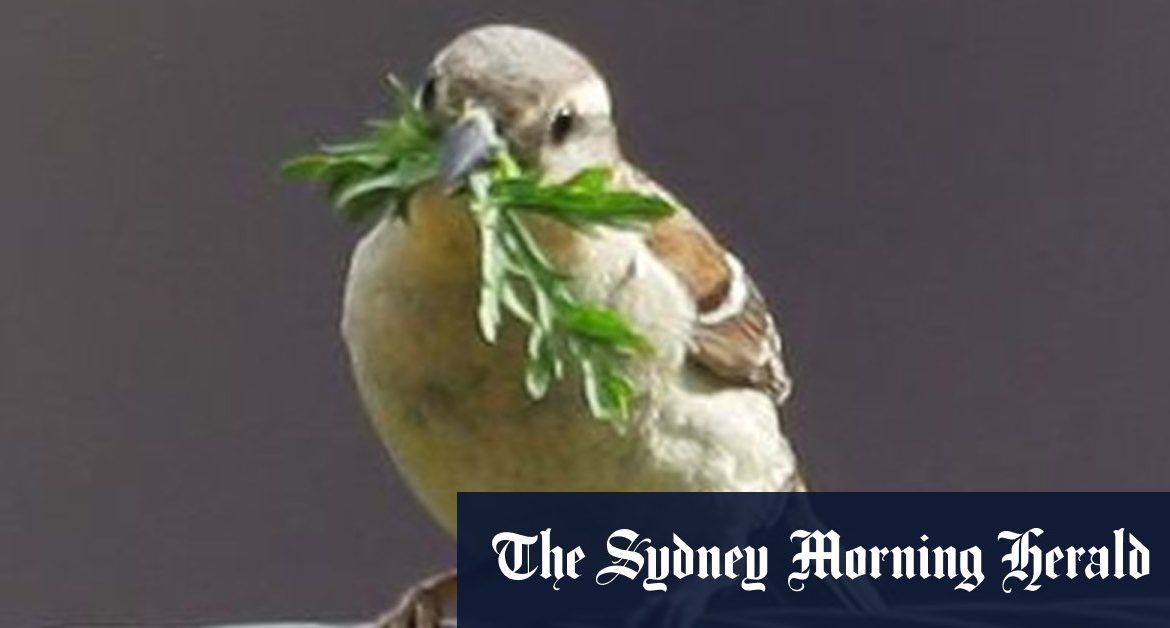Dr Feeney said they conducted experiments to see whether the birds were targeting the wormwood leaves specifically or picking them up randomly.
“We found that the birds include it in their nest and will seek it out based on the smell of the plant, and they’ll adjust the amount of wormwood in their nest,” he said.
Locals in China hang wormwood leaves during the annual Dragon Boat Festival.
“When they have wormwood in their nests, their chicks get less parasites and tend to be larger and healthier overall.”
The researchers experimented with adding or removing wormwood from the birds’ nests and found that if removed, the birds would add more, and if added, the birds would throw out some until they had an “ideal” amount.
In many parts of China during the annual Dragon Boat Festival, people hang wormwood from their doors and bathe their children in water infused with it in the belief it protects against ill health.
That piece of folk medicine is borne out by the scientifically known properties of wormwood leaves, which contain compounds that can help prevent parasitic infections.
Dr Feeney said the mirroring of use by humans and birds did not appear to be a coincidence.
“The use of medicine by birds has been considered for years but there has never been a good, clear example of a bird species seeking out a specific plant,” he said.
“In some species, only the male brings the plant with medicinal qualities. In some cases, they bring lots of different plants and it’s hard to confirm that they’ve brought one specifically.
“Here, not only do you have a clear pattern of behaviour, with the birds specifically targeting that plant and no others, but you have the local human population also targeting that plant for the same purpose.”
Loading
In Europe, some species of starling use plants with medicinal qualities, but only the males of the species bring them to the nest, leading to debate over whether they are presenting a “gift” in a mating ritual rather than seeking out medicine.
In parts of Africa, chimpanzees have been observed using medicinal plants to treat intestinal complaints – the same plants used by humans living in the area.
Dr Feeney said the use of medicine by animals could give insight into how humans developed medicine.
“You have this string of behaviours that have, in the past, been thought of as uniquely human,” he said.
“But we can see that these seemingly complex behaviours can emerge simply as a natural process.”
The research has been published in the journal Current Biology.
Stuart Layt covers health, science and technology for the Brisbane Times. He was formerly the Queensland political reporter for AAP.
Most Viewed in National
Loading







